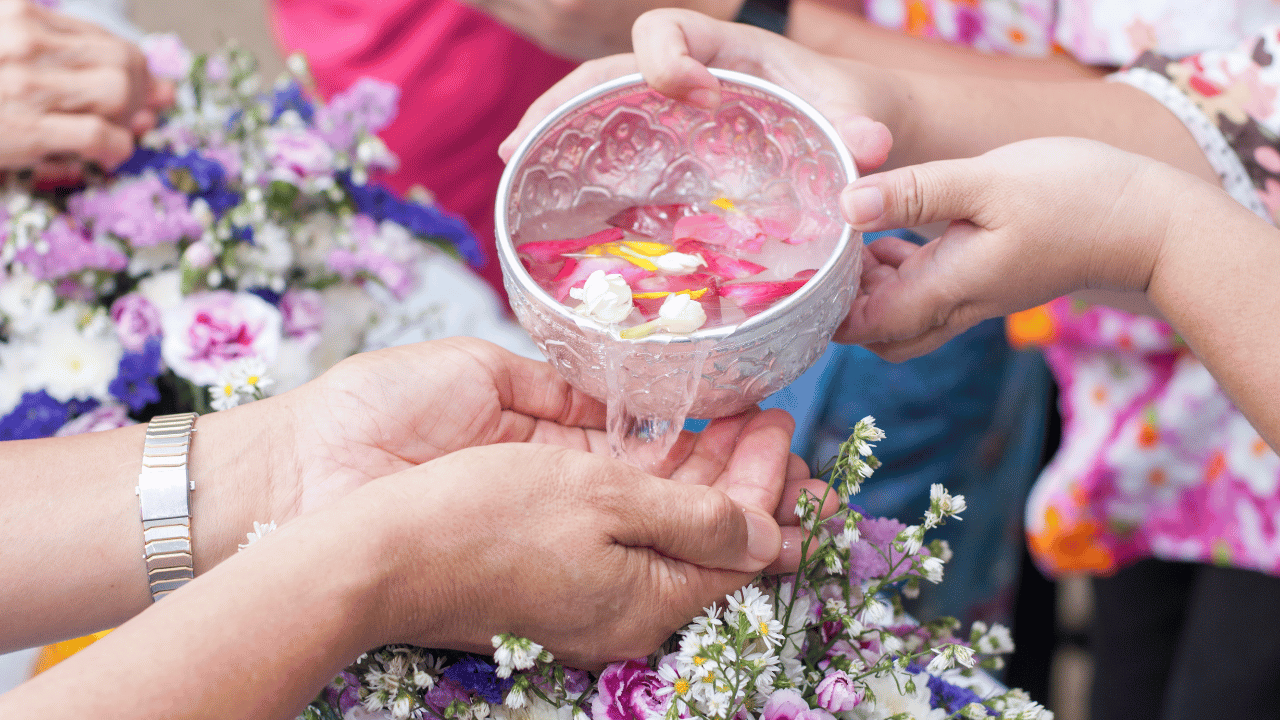Songkran, often referred to as the “Water Festival,” is undoubtedly one of the most popular and widely celebrated festivals in Thailand. Originating from the Sanskrit word “sankranti,” meaning “astrological passage,” Songkran marks the transition of the sun from one zodiac sign to another. Specifically, it signifies the movement of the sun into Aries, ushering in the Thai New Year.
What is Songkran All About?
Table of Contents
Traditionally, Songkran was a time for cleansing and purification. Water was poured over statues of Buddha, and this cleansed water was then used to bless loved ones by gently pouring it over their shoulders. Over time, this serene ritual transformed into playful water fights that Thailand is famously known for today. Beyond the splashes and revelry, Songkran still retains its profound cultural and spiritual significance.
Celebrating Songkran
Water Fights
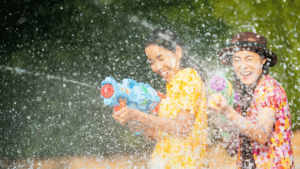
First and foremost, Songkran is synonymous with water fights. Locals and tourists alike arm themselves with water guns, hoses, and buckets, splashing anyone and everyone in sight. In the sweltering April heat, these water battles offer a refreshing reprieve.
Temples and Traditions
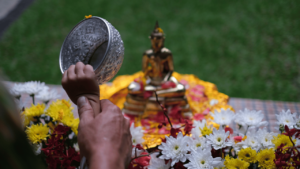
Visiting temples is an integral part of the Songkran experience. Many Thais start their day by giving alms to monks and making merit. Later, they’ll pour water over Buddha statues, symbolizing purification and the washing away of sins and bad luck.
Sand Stupas
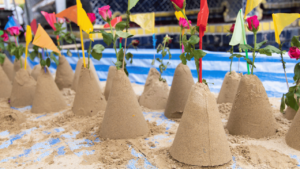
In some regions, people build sand stupas at temples. This tradition compensates for the sand that is carried away on their feet throughout the year.
Traditional Foods
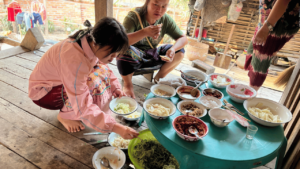
Songkran is also a time for feasting. Traditional foods like ‘khao chae’ (rice soaked in cool water and served with side dishes) and ‘khanom jeen’ (rice noodles with curry) become staples during this period.
Songkran Across Thailand: A Detailed Overview
| City | Highlights | Unique Features |
|---|---|---|
| Bangkok | Massive water fights in Silom | Special concerts and parties in RCA area |
| Chiang Mai | Grand procession of Buddha statues | Tug-of-war games across the Ping River |
| Pattaya | Extended celebrations (Wan Lai Festival) | Sand sculptures on the beach |
| Phuket | Water battles along Patong Beach | Fireworks display |
| Ayutthaya | Celebrations with elephants | Traditional costume parades |
Frequently Asked Questions
When is Songkran Celebrated?
Songkran is typically celebrated from April 13th to 15th. However, in some regions, festivities can stretch for an entire week or more.
Is Songkran Only About Water Fights?
No, while water fights are a major highlight, Songkran is deeply rooted in Buddhist traditions. Activities like temple visits, merit-making, and respecting elders by pouring water on their hands remain at its heart.
What Should I Wear During Songkran?
Opt for light and quick-drying clothes. Avoid wearing white as it becomes transparent when wet. And don’t forget to protect your belongings in waterproof bags.
Is Songkran Celebrated Outside of Thailand?
Yes! While it’s most prominent in Thailand, neighboring countries like Laos, Cambodia, and Myanmar have similar New Year celebrations around the same time.
In Conclusion
Songkran, Thailand’s Water Festival, is a delightful blend of fun, tradition, and spirituality. From the vibrant water battles in the streets of Bangkok to the serene temple rituals in Chiang Mai, Songkran offers a diverse range of experiences. It’s a testament to Thailand’s ability to preserve its cultural heritage while embracing change and modernity. Whether you’re looking to immerse yourself in traditional ceremonies or just let loose with water fights, Songkran promises unforgettable memories. So, mark your calendars, pack your water guns, and dive into the celebrations!

